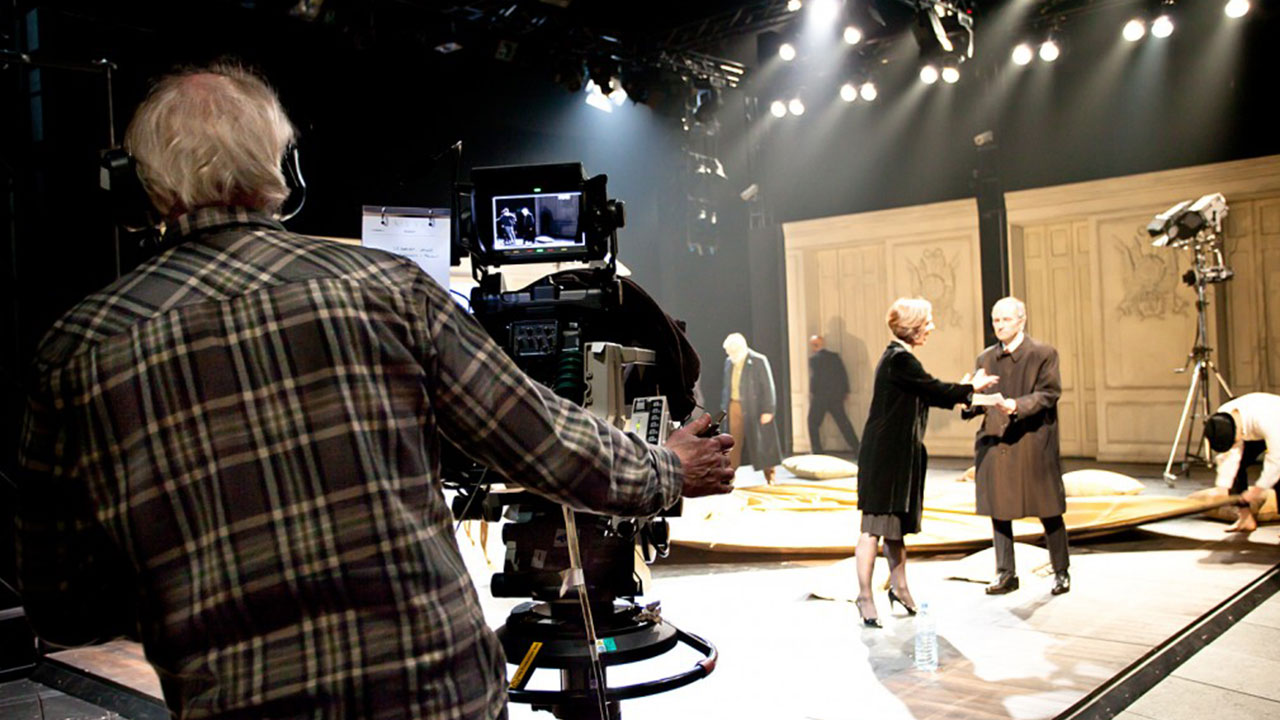Lauded by some for increasing accessibility, but lambasted by others for ruining the true live experience, National Theatre Live is a major talking point in British theatre. Our writers Aiden Wynn and Stephanie Bennett go head to head to see if the lives up to the hype…
Performances by highly regarded theatre companies have never been the most inclusive events. Thankfully, NT Live has provided a way of bridging the gap; by screening many of the National Theatre’s productions in cinemas across the globe, this initiative creates a greater level of accessibility in the world of theatre.
For example, a local cinema is almost always going to be more convenient than going to the theatre, in terms of things like travel costs and parking. And, while tickets for NT Live screenings aren’t exactly cheap, they are a lot cheaper than purchasing tickets for just about any decent seat in the actual venues.
‘Theatre involves a sense of elitism, as well as a level of etiquette that, while completely valid and necessary, is uninviting’
Don’t get me wrong, I adore going to the theatre, and the immersive experience it entails. But that experience also involves a sense of elitism, as well as a level of etiquette that, while completely valid and necessary, is uninviting for the fidgets, the foodies, and those who want to enjoy a performance in a relaxed environment. It may not be quite the same, but the cinema is, undeniably, a more welcoming environment than a theatre.
I’m not suggesting that the level of accessibility provided by NT Live is perfect; the screenings are few and far between, and there are only two – at most – for any production. Plus, let’s be honest, there is a lot that you can lose by not seeing a performance at a theatre, like the power of the effects, and the electric atmosphere that you can’t get anywhere else.
So it is not perfection I am arguing, or even anything close to that. What I am arguing though is that initiatives like NT Live are a step in the right direction, because they allow a greater number of theatre-lovers to be theatre-goers – even if it is only through the big screen.
Aiden Wynn
Often acclaimed, National Theatre Live could be argued to be a dynamic method of capturing theatre to accommodate those that can’t always attend performances due to location or monetary costs. However, that’s perhaps the only solace that theatre-lovers can possibly hope for when, in actuality, NT Live is arbitrary and artificial.
The nuance of theatre that is so carefully wrought for the stage is ultimately lost in the midst of a broadcast. A predominant element of the magic so many ardently clamour for when attending a performance is through watching from the theatre itself, not through the displacement and hollow translation of a television or cinema screen. The very depth and heartfelt core of a performance is lost through the atmosphere of the theatre; how can actors truly perform when half of their audience is not even visible?
Small-scale touring companies that perform in the hearts of communities are constantly battling National Theatre Live screenings, slashing the budding performances of innovative writers across the country. The subtle discrepancies and shades of tone, pitch, expression and movement found in such live productions are irrevocably forsaken, cast aside in favour of more viewers. The refined and intricate delicacy of a live performance is practically bludgeoned into a filthy, fetid and foul mockery.
‘Small-scale touring companies that perform in the hearts of communities are constantly battling National Theatre Live screenings’
It would be more beneficial for National Theatre Live to tour their work alongside the caricature of their current screenings. If their primary issue is ensuring that the public can watch if they so wish, then surely it can be solved through tours through the country. This guarantees that the essence of theatre is not discarded in favour of a weak parody of its brilliance and genius.
Stephanie Bennett
(Image courtesy of The National Theatre)

